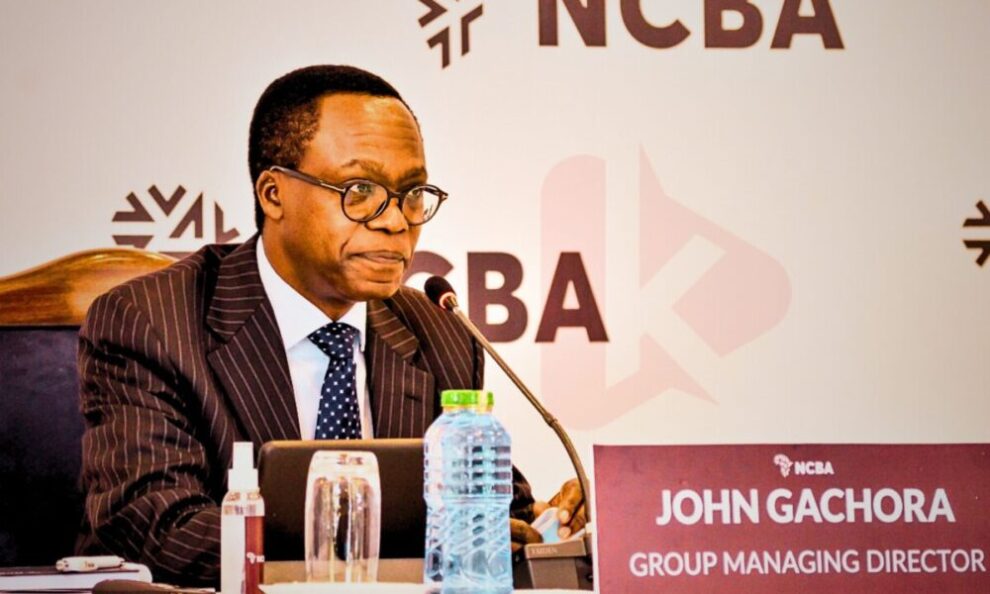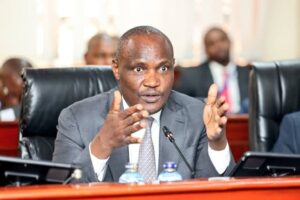NCBA Bank’s CEO John Gachora has launched a scathing attack on the country’s Generation Z.
Gachora has labeled this demographic as economic saboteurs, citing their recent protests as the primary cause for a massive economic downturn.
According to Gachora, the protests led by Gen Z have resulted in an unprecedented loss of 900 billion shillings in just 30 days.
This staggering figure translates to an economic loss of 30 billion shillings every day, or an astonishing 1 billion shillings every hour.
Gachora’s comments come at a time when the country is grappling with multiple economic challenges, including inflation, unemployment, and the aftershocks of the global pandemic.
His statement has ignited a fierce debate about the role of youth in Kenya’s socio-economic landscape and the methods they employ to express their grievances.
The protests, primarily driven by Gen Z, have been fueled by issues such as unemployment, police brutality, and political disenfranchisement.
These young Kenyans have taken to the streets to demand change, but their actions, according to Gachora, have had severe economic repercussions. The disruptions caused by the protests have affected businesses, halted trade, and created an environment of uncertainty that has scared away investors.
“The data speaks for itself. Losing 900 billion shillings in such a short span is catastrophic. These protests are not just expressions of dissatisfaction; they are acts of economic sabotage,” Gachora stated during a press briefing. “Every hour of unrest costs the nation a billion shillings. This is unsustainable and poses a grave threat to our economic stability.”
Gachora’s harsh words have drawn mixed reactions from various quarters.

Supporters of the protests argue that the youth are merely exercising their democratic rights and highlighting genuine issues that need addressing.
They point out that systemic problems like corruption, lack of opportunities, and poor governance are the real culprits behind the economic woes, not the protests themselves.
However, business leaders and some government officials have echoed Gachora’s sentiments, emphasizing the need for stability to foster economic growth.
They argue that while the right to protest is fundamental, it should not come at the cost of national economic health.
The situation raises critical questions about the balance between civil liberties and economic stability.
While the youth have legitimate concerns that need to be addressed, the method and timing of their protests could have long-lasting implications on the country’s economic health.
The challenge lies in finding a way to channel this youthful energy and demand for change into constructive and sustainable avenues that do not harm the economy.
NCBA Bank’s CEO is not alone in his concern. Several other financial institutions and business entities have reported significant losses due to the ongoing unrest.
Small and medium enterprises (SMEs), which are the backbone of Kenya’s economy, have been particularly hard hit.
The disruptions have led to closures, layoffs, and a general slowdown in economic activities, exacerbating the already challenging economic climate.
While the grievances of Kenya’s Gen Z are real and pressing, the economic cost of their protests cannot be ignored.
There is an urgent need for dialogue and constructive engagement between the youth, government, and the private sector.
Only through collaboration and mutual understanding can Kenya navigate this turbulent period and pave the way for a more stable and prosperous future.





















Add Comment